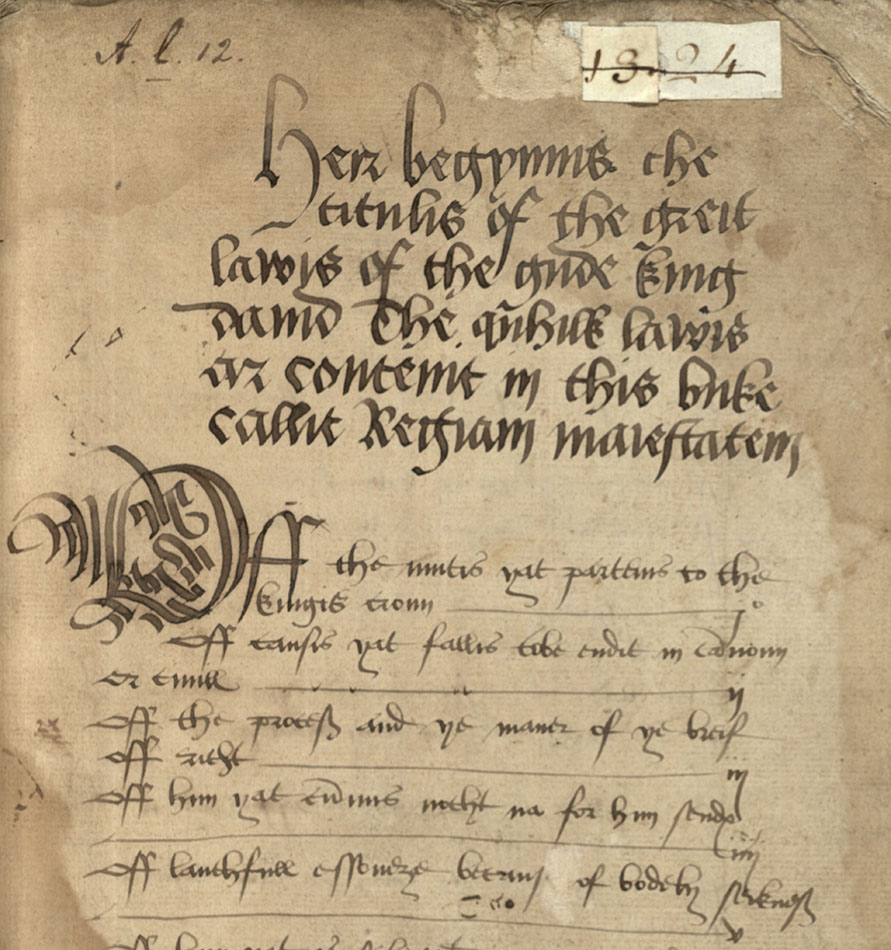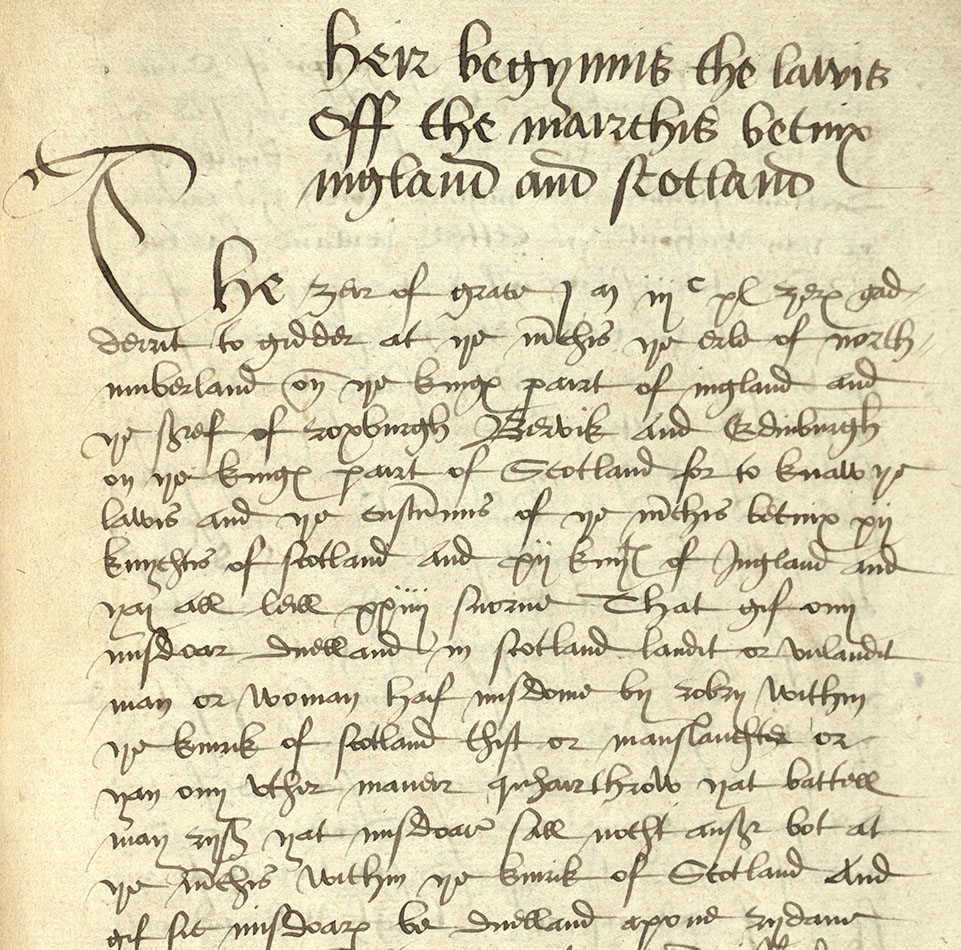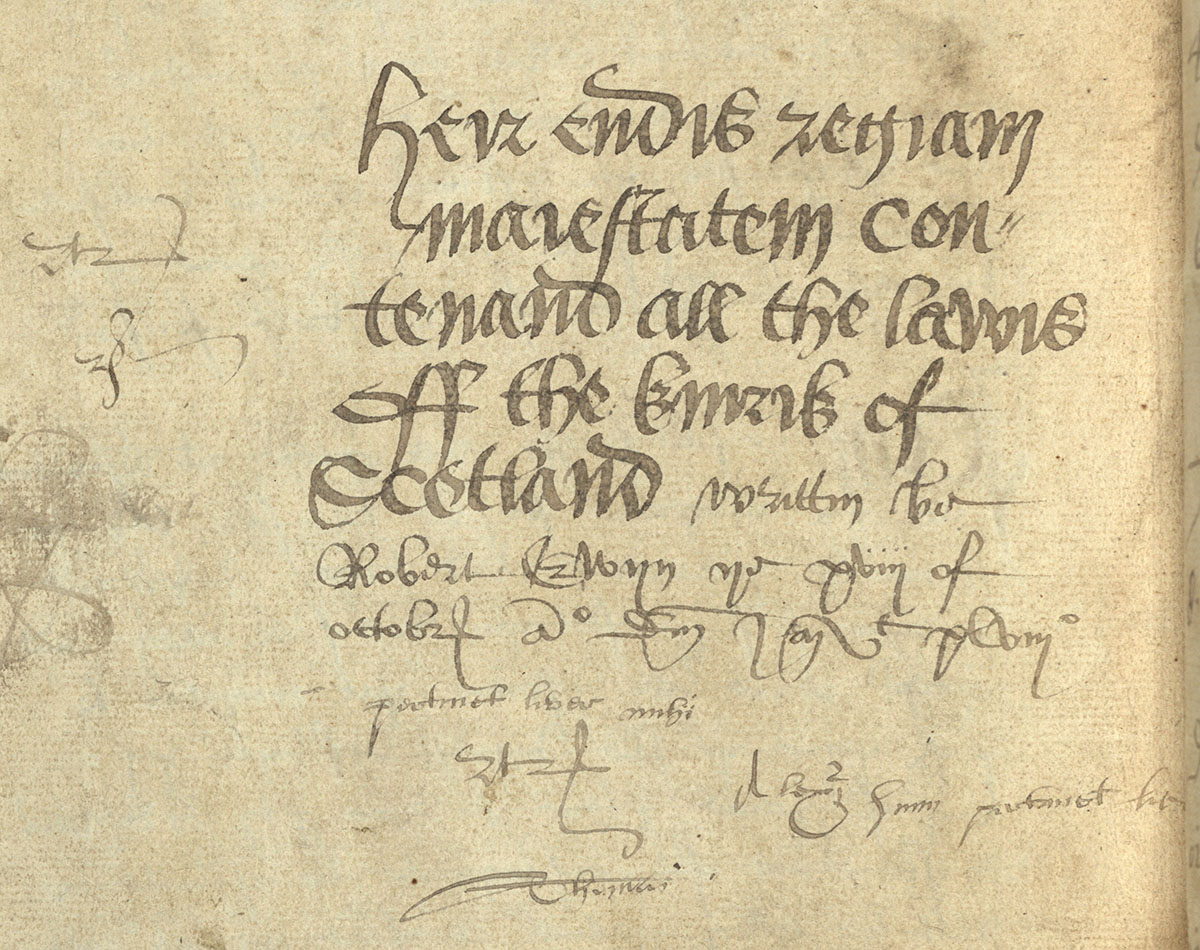The Regiam Majestatem
Special Collections was recently able to ‘bring home’ an exciting copy of the key Scottish legal text. The manuscript of Regiam Majestatem, written in Lowland Scots, dated 18 October 1548, and was owned by a St Andrews student, the poet and writer Alexander Hume. The purchase was made possible through the generous support of the Friends of the National Libraries.

The Regiam Majestatem is collection of Scottish statutes and legal texts. It consists of four books, treating civil actions and jurisdictions, judgments and executions, contracts, and crimes. It is based on the 1188 Tractatus de legibus et consuetudinibus regni Angliae (Treatise on the laws and customs of the Kingdom of England) of Ranulf de Glanvill, and also incorporates features of thirteenth century canon law, and the Scottish Celtic Laws of the Brets and Scots. The documentary basis of Scots law had been largely destroyed by the confiscations of Edward I of England in the thirteenth century and by two devastating English invasions led by Edward I and Edward III in the thirteenth and fourteenth centuries. When the Regiam Majestatem was discovered in the early fifteenth century, it was embraced as an authoritative source of law.

There are a number of surviving manuscripts of Regiam Majestatem. We already have a copy of the manuscript in Special Collections written in Latin and Scots, dated c.1500, and obtaining another copy provides interesting opportunities for comparison.
Our new manuscript is known as the Marchmont Regiam and is signed and dated 18 October 1548 on the last leaf by the scribe and notary Robert Ewyn:
Heir endis regiam maiestatem contenand all the lawis off the kinrik of Scotland writtin be Robert Ewyn the xviij day of Octobr[is] a[nn]o d[omi[n]i Jaj V.c xlviij.

The recipient of the manuscript, Alexander Hume (c.1557-1609), was a student at the University of St Andrews. A poet and writer, he attended St Mary’s College, graduating BA in 1574 and was given the manuscript by his maternal uncle, Alexander Hume of Manderston in 1582. Hume lived for four years in France, where he probably studied law, which is perhaps the reason he was given the manuscript. After qualifying for the bar at Paris he spent three miserable years vainly waiting in the Edinburgh courts for suitable employment. Disappointed, he sought office at court, and then became a clergyman. In 1598 Hume was appointed minister of Logie, in Perthshire, shortly before his Hymnes, or, Sacred Songs was published in 1599 by the royal printer Robert Waldegrave. Much of Hume’s poetry is devoted to the contemplation of divine creation and the miracle of nature.
The manuscript also bears the name of Homer Blair, Professor of Mathematics at St Salvator’s from 1587, who had graduated Bachelor 1566 and Master 1568 from St Mary’s College.
We recently displayed both of our manuscripts of Regiam Majestatem at Living with the Law: Society and Legal Disputes c. 1200-1700, a conference hosted by the St Andrews Institute of Legal and Constitutional Research. We look forward to making the manuscript accessible to researchers and to using it in teaching.
[…] via The Regiam Majestatem — Echoes from the Vault […]
[…] was an honour to hear about their work. I was also privy to the most up-to-date research on the Scots MS, as Rachel Hart and Margaret Connolly gave me access to their pretty spectacular research findings […]